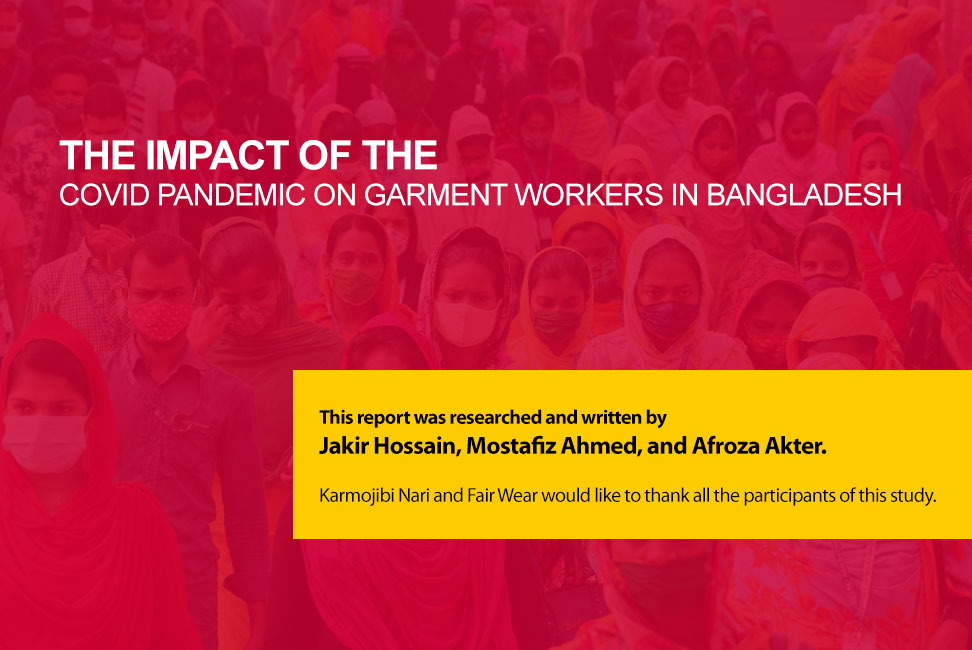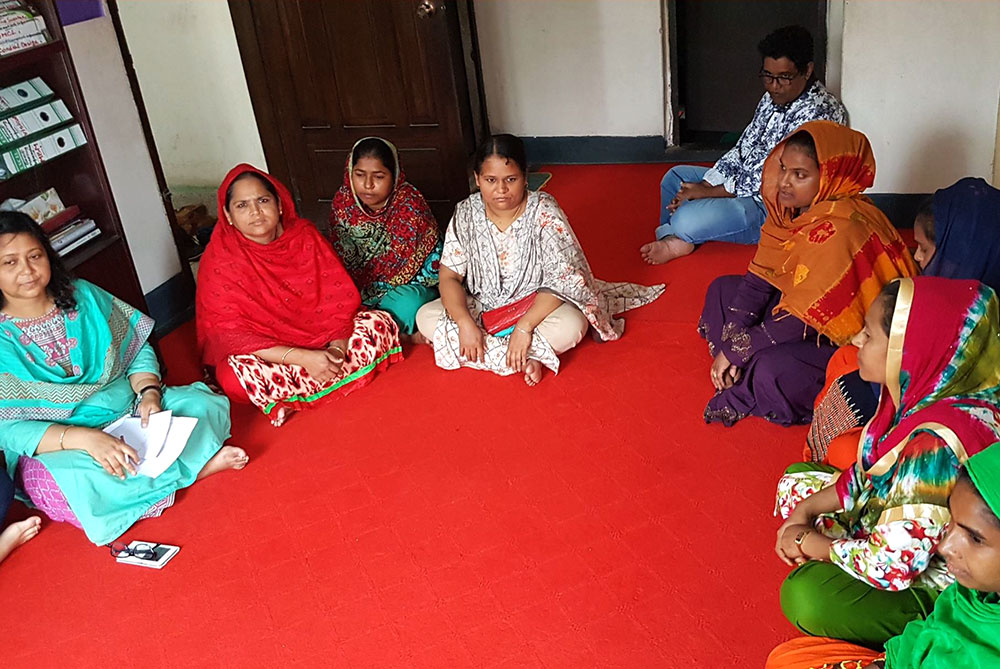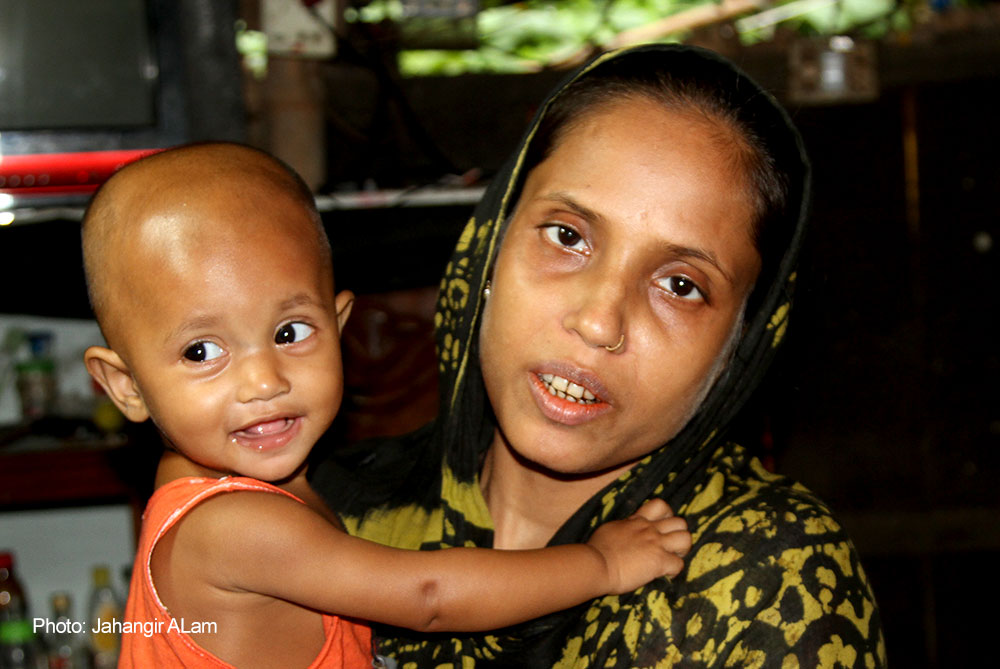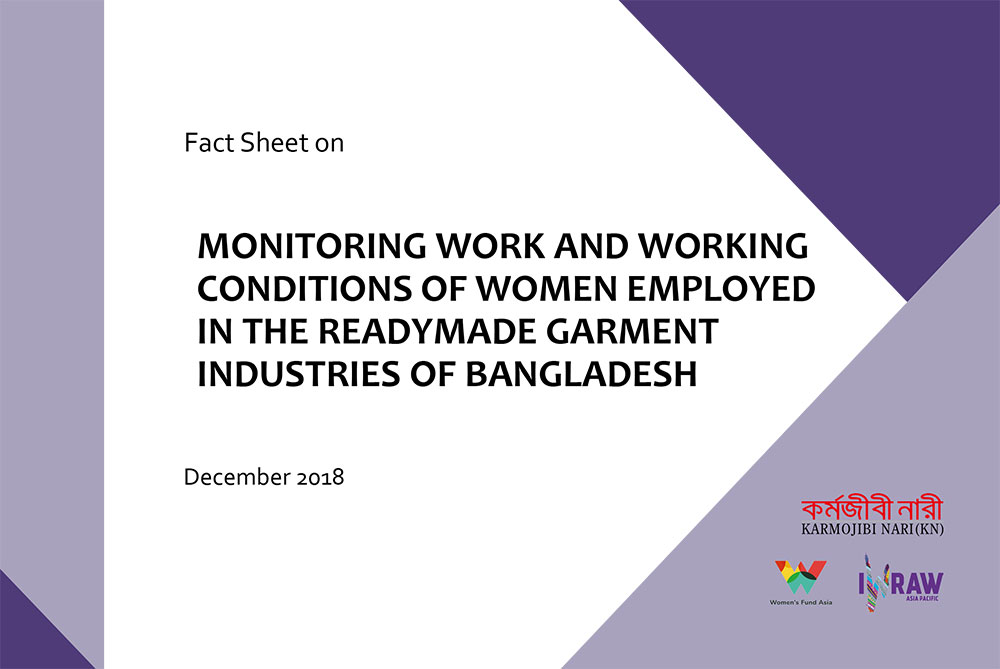
Dec 5, 2021 | Report
BACKGROUND: The Covid pandemic is profoundly affecting Bangladesh’s economy along with its labour market. The shutdown, or slowdown, of economic activities is impacting the income and livelihoods of the working people. Bangladesh’s largest export earning sector—ready-made garments (RMG)—is of no exception. Click For Details: PDF

Dec 5, 2021 | Report
BACKGROUND: The readymade garments (RMG) industry in Bangladesh that was established in the 1980s has grown to such an extent that Bangladesh is today the second largest exporter of readymade garments in the world after China. Around 83.5% of the country’s total export earning comes from garments sector. Click For Details: PDF

Nov 21, 2021 | Report
Jakir Hossain, Mostafiz Ahmed, and Afroza Akter | Click for PDF
Executive Summary
The objective of this watch report is to unearth the implementation status of the rights of women workers of RMG in Bangladesh and formulate a set of key actions for advocacy. To attain the objective, the study employed a mixed method approach. Quantitative data is drawn from questionnaire survey administered with 390 women workers (154 respondents from Dhaka, 116 respondents each from Gazipur, and Narayanganj). Qualitative information is drawn from three FGDs (one each in Dhaka, Gazipur, and Narayanganj) and KIIs with policymakers, gender expert, representatives of employers’ association, Trade unions, Civil Society Organization (CSO) and Labour Rights NGOs.
Bangladesh is obliged to uphold workers’ rights through the international workers’ rights and human rights instruments that include ILO conventions, Universal Declaration on Human Rights (UDHR), International Covenant on Civil and Political Rights (ICCPR), International Covenant on Economic Social and Cultural Rights (ICESCR), and Convention on Elimination of All Forms of Discrimination Against Women (CEDAW); and national legal and policy instruments comprise the Constitution, Bangladesh Labour Act (BLA) 2006, Bangladesh Labour Rules (BLR) 2015, National Occupational Safety and Health Policy (OSH Policy), National Labour Polcy (2012), Fire Prevention and Extinguishing Act 2003 (FPEA 2003), Bangladesh National Building Code 2006 (BNBC 2006), Penal Code and the verdict of the High Court.
Rights coverage of women workers of RMG has been examined based on both international and national standards in several broad areas—employment contract; workplace discrimination and harassment; working time, rest, and leave; welfare; social protection; and freedom of association and collective bargaining. This study finds positives changes in the legal instruments. However, there are gray areas also. In many areas there are considerable gaps and debates. The recent labour law amendment has significantly improved the issues of festival bonus, restricted employment of children under 14 years of age, has eased, to some extent, the condition of TU registration process, has included provisions on SOP and anti-union discrimination and has increased the amount of compensation (although not according to ILO convention). However, the amendment has also created tensions among the workers. It has created a scope to expand daily working hours; has not increased the maternity leave to make it consistent with government sector employees/workers; has retained precondition for TU formation; has created the scope of a reduction in benefits for compensatory leave and festival leave. Moreover, the law still misses specific provisions on accommodation, pension, medical allowance, rehabilitation, alternative skill development, violence against women at the workplace, and workers’ skill development.




